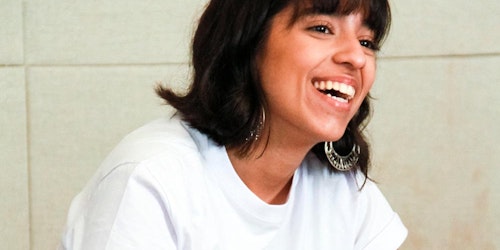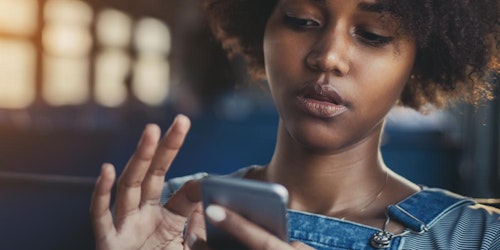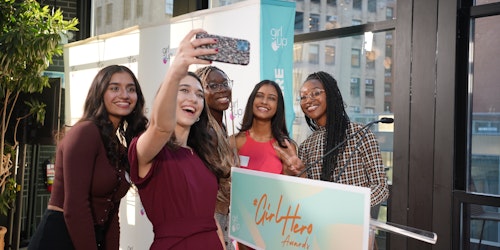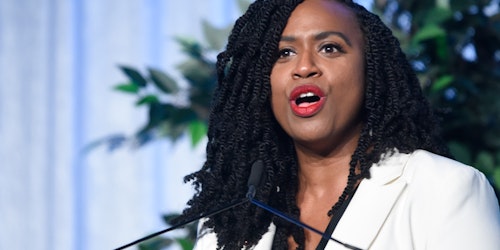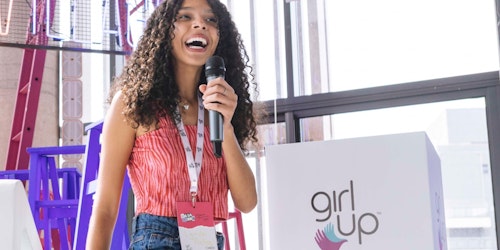The following blog was written by a member of Girl Up’s Global Mental Health and Wellness Advisory Committee, a committee of youth dedicated to bringing more mental health and resources to global Girl Up community. After conducting research in their own communities, the advisory group identified three key issue areas, the first being the stigma surrounding getting mental health support. The following blog is part of a letter writing series that addresses the role of stigma; the campaign is youth-led, youth-written and youth-inspired.
Dear Africa,
Let me tell you a story.
Long ago, say the 18th century, before the colonization of Africa, there was a problem that had no name. In a small town named Kefiki, where the trees and rivers were all that whispered life, men, women, and children alike were wounded.
Here comes the problem. Their wounds were not physical. There had been an occurrence of events that seemed strange to the human eye. Men were taking their own lives. Now, this was not a foreign concept. But rarely did men take their own lives when they committed no crimes.
The elders, in response, held a meeting to discuss how to stop the “shameful” act from repeating itself. They thought, “perhaps we can cut off their hands so they can’t try this again.” “Or maybe, we should tie them to a tree and when lightning strikes, we can perform a ritual to cast out the spirits that may have possessed them.”
So, they did, and instead of the men of Kefiki killing themselves outwardly, they did it inside. This was the problem that had no name.
Before you scoff at their actions, pause. Don’t be quick to judge them. I’m pretty sure many people in Africa would do this if they had the chance, despite the level of development we’ve attained today.
Of course, Kefiki is just a name I made up. But isn’t it wild how believable that story sounds? That’s because it could’ve happened anywhere, from Northern Nigeria to the Cape of Good Hope. It’s the kind of silence we’ve inherited. The kind that still lingers today.
Only now, it is a problem that has a name.
Still with me? Then hear me out.
No. You’re not possessed. You’re not cursed. You’re not weak. You’re just…human.
But they told you otherwise, didn’t they?
You’re a person who gets tired, even after sleeping. Who overthinks. Who cries at random hours. Who wants silence, not because you hate people, but because your head already feels like it’s housing a crowd. You’re someone who battles invisible things in a world that only respects what it can see.
But none of this makes you crazy. It makes you human.
Some of us grew up hearing that sadness is weakness. That struggling with your mental health means you’re being punished, or worse, that you’re just lazy. That seeking help is a betrayal of your upbringing, your family, your “strength.” We’ve been taught to hide our pain behind silence and smiles. We’ve watched adults label everything they didn’t understand as madness, and then lock it away.
But if no one else will say it, I will: you’re not cursed. You’re not dramatic. You’re not a burden. You’re simply living in a world that doesn’t always make room for the softness of being human.
And in many parts of Africa, stigma still sits at the center of our conversations, or rather, the lack of them. Conversations about depression, anxiety, PTSD, eating disorders, burnout. Conversations we shy away from because we’re afraid of what they mean, or because we’ve been told that these are not “African problems.” But they are. And they’ve been here all along.
In fact, mental health challenges are one of the biggest issues affecting African youth today. According to the WHO, most African countries have fewer than one psychiatrist for every 100,000 people. This shows how many of us don’t even have the words to describe what we’re going through, because our languages and communities never made space for this kind of pain.
But that’s what we’re doing now. Making space.
This letter is one small part of a larger story, a story where African students, teens, daughters, sons, leaders, and friends get to speak up and say, “I am not okay,” and be met with understanding, not shame. A story where we begin to treat mental health as health. A story where our conversations grow bolder than our silence.
So, if you’ve been struggling quietly, just know: you are not alone. You’re not too broken to be helped. You’re not too sensitive. You’re not weak. You deserve support. You deserve language for your feelings. You deserve a life where healing isn’t hidden behind fear.
This isn’t about turning away from your culture or your upbringing. It’s about evolving the narrative. It’s about making room for truth and tenderness. It’s about saying, “Yes, I am African. Yes, I am strong. And yes, I need help sometimes.”
Let’s stop whispering. Let’s start writing. Let’s start talking. Let’s break the stigma, word by word.
With love and power,
Olamide
Author’s Note:
This letter contains a fictional story about the town of Kefiki. While the town does not exist, the message it carries reflects real stigmas surrounding mental health across Africa today. The goal of this piece is to raise awareness, foster conversation, and create a culture of empathy and support for African youth.
Don’t see your country represented? Submit a letter to be published! Email your draft to communications@girlup.org for a chance to be featured.
To read other letter, see here.
To learn more about the Mental Health and Wellness committee, visit our Instagram where you can see the group’s work featured.



